-

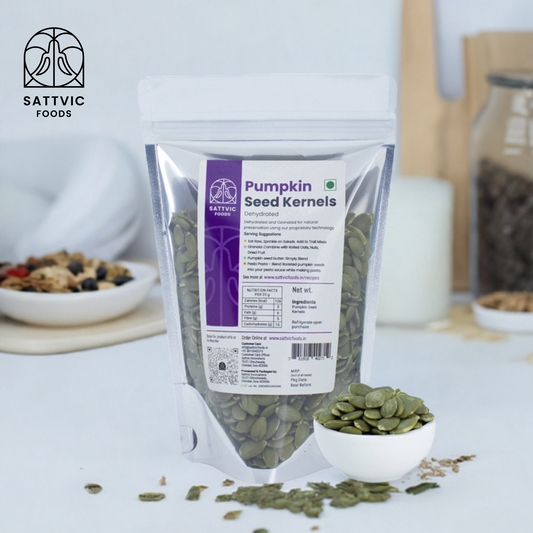
Green Pumpkin Seeds | Mineral-Rich | No Shell
Regular price From Rs. 150.00Sale price From Rs. 150.00 Regular priceUnit price perRs. 0.00 -
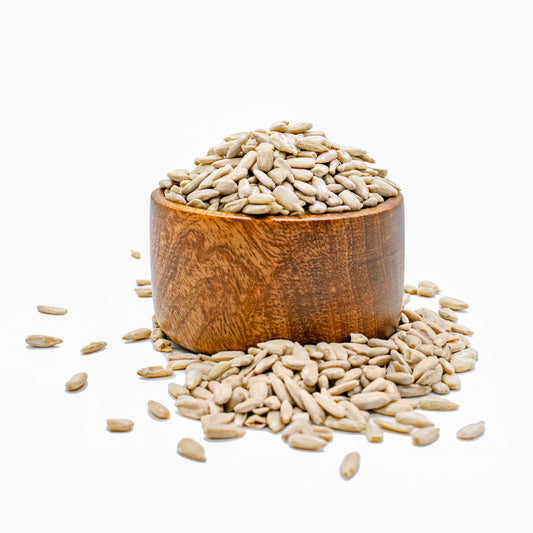
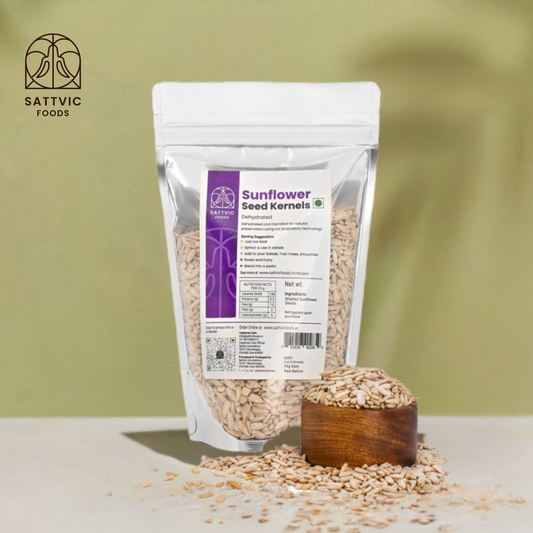
Raw Sunflower Seeds (No Shell)
Regular price From Rs. 150.00Sale price From Rs. 150.00 Regular priceUnit price perRs. 0.00 -
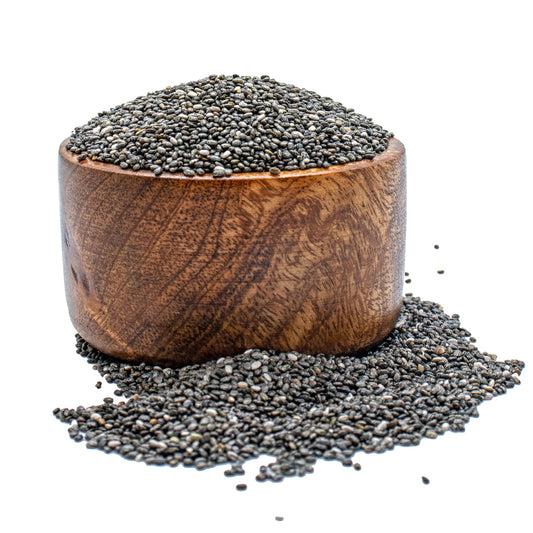
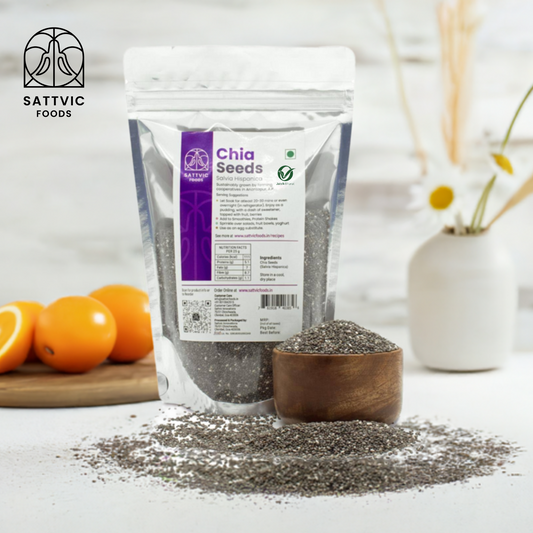
Chia Seeds (Salvia hispanica) Organic
Regular price From Rs. 150.00Sale price From Rs. 150.00 Regular priceUnit price per -
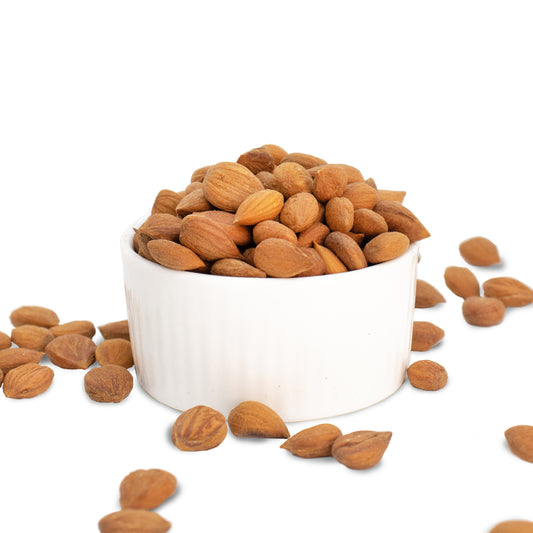
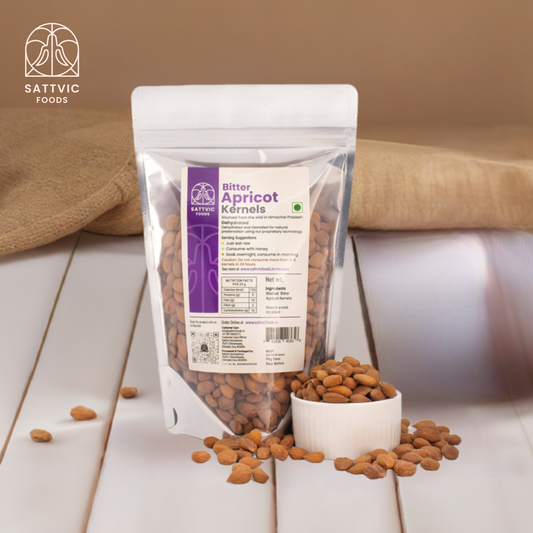
Wild/Bitter Apricot Kernels | Immunity Boosting
Regular price From Rs. 200.00Sale price From Rs. 200.00 Regular priceUnit price perRs. 0.00 -
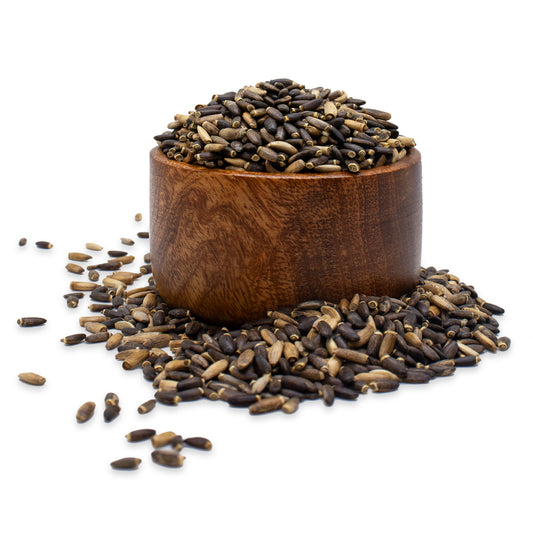
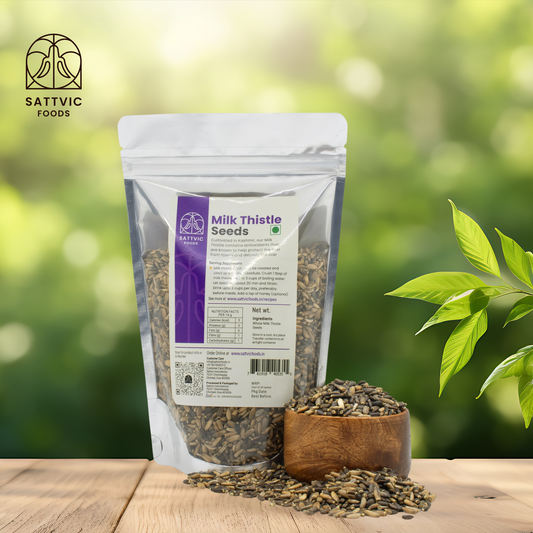
Milk Thistle Seeds | Natural Detox & Antioxidants
Regular price From Rs. 200.00Sale price From Rs. 200.00 Regular priceUnit price perRs. 0.00 -

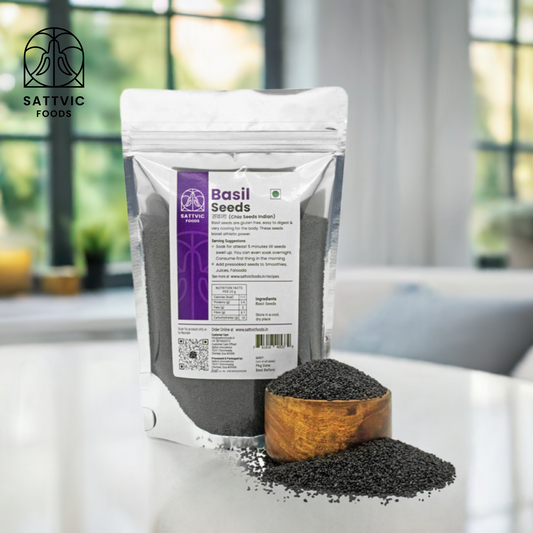
Basil Seeds (Sabja / Indian Chia seeds)
Regular price From Rs. 150.00Sale price From Rs. 150.00 Regular priceUnit price perRs. 375.00Sale -
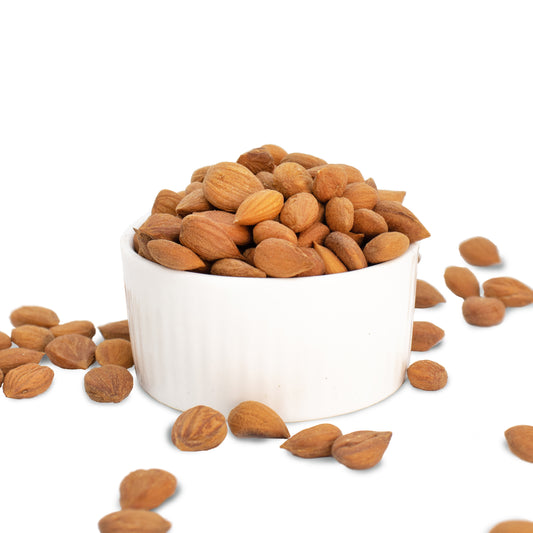
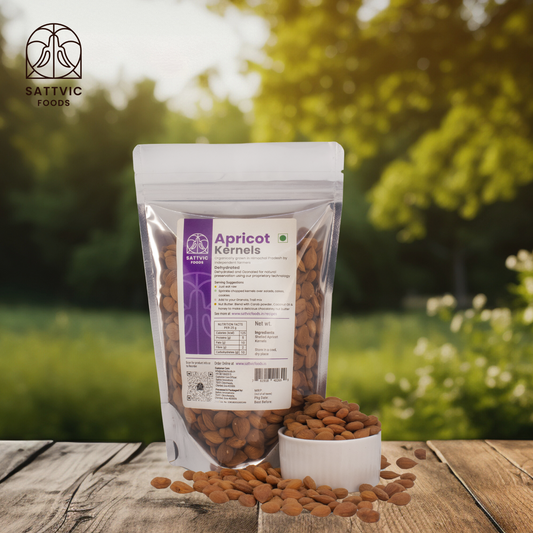
Sweet Apricot Kernels | Immune Boosting & Heart Healthy
Regular price From Rs. 200.00Sale price From Rs. 200.00 Regular priceUnit price perRs. 0.00 -
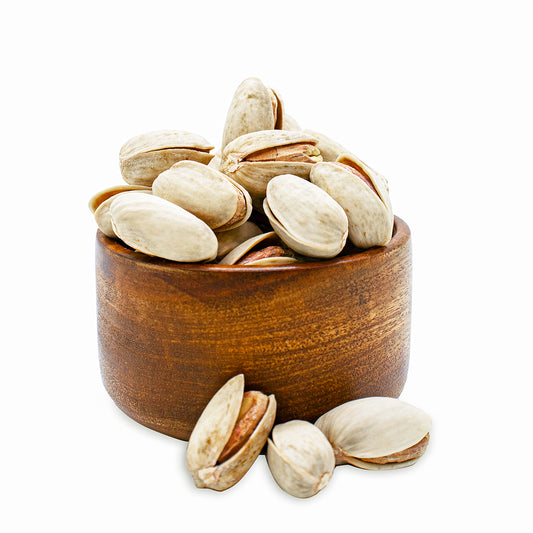
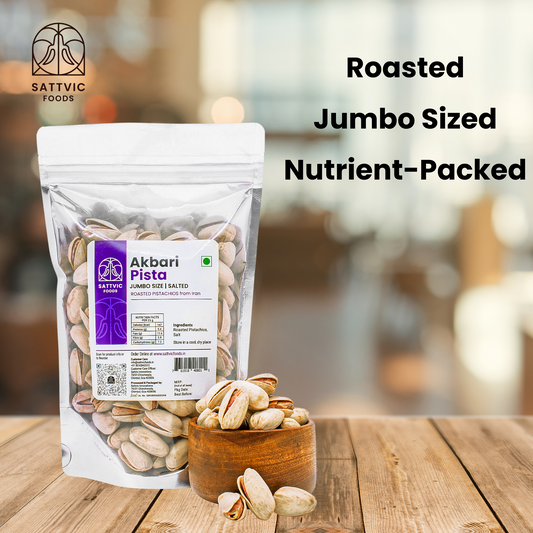
Akbari Pistas | Roasted and Salted | Jumbo size
Regular price From Rs. 650.00Sale price From Rs. 650.00 Regular priceUnit price perRs. 750.00Sale -
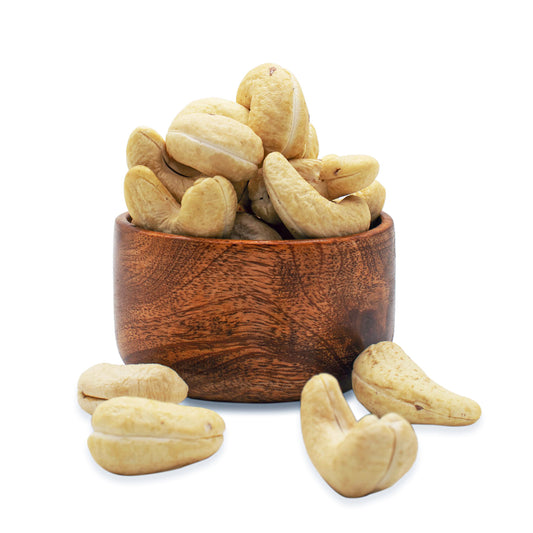
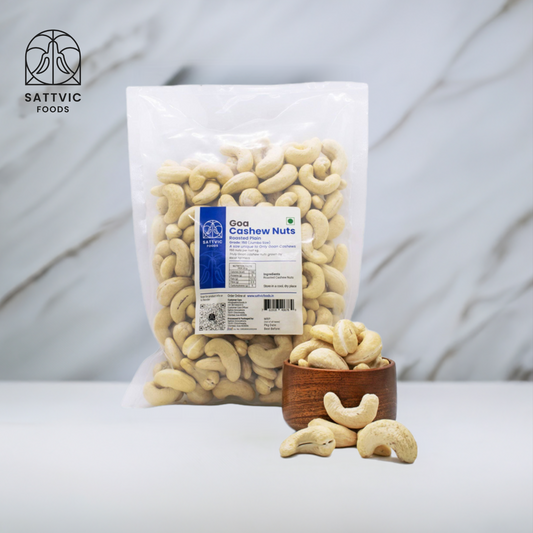
Goan Emperor Cashew Nuts (Roasted Plain)
Regular price Rs. 1,200.00Sale price Rs. 1,200.00 Regular priceUnit price per -
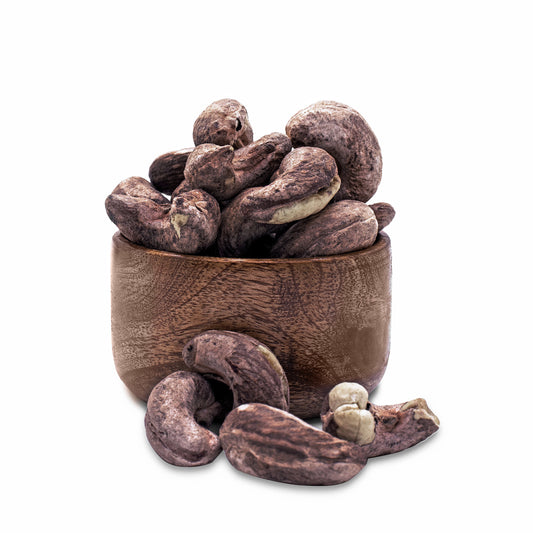
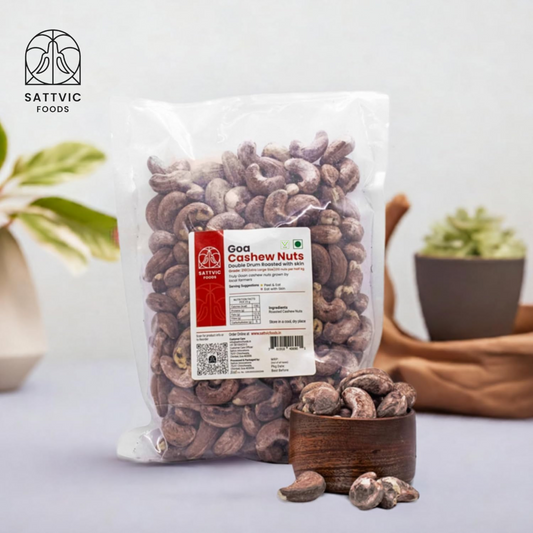
Double Drum Roasted Cashew Nuts with Skin - Extra Large
Regular price Rs. 950.00Sale price Rs. 950.00 Regular priceUnit price per -

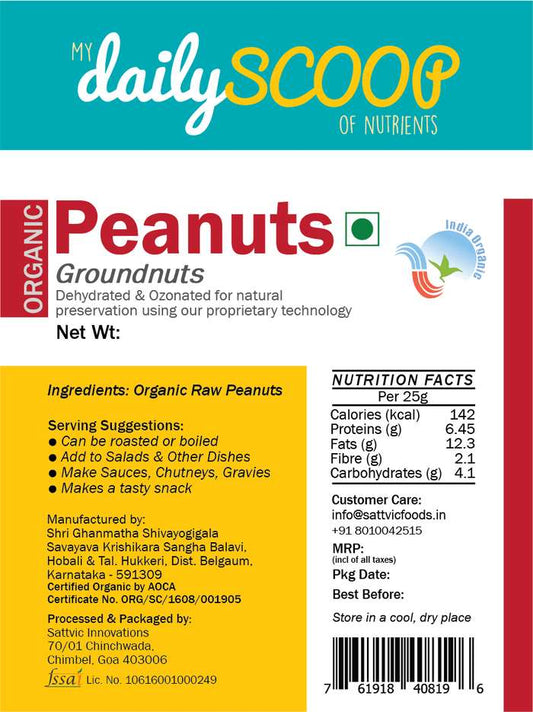
Peanuts (Organic / Raw / Unsalted) 500g
Regular price Rs. 150.00Sale price Rs. 150.00 Regular priceUnit price per -

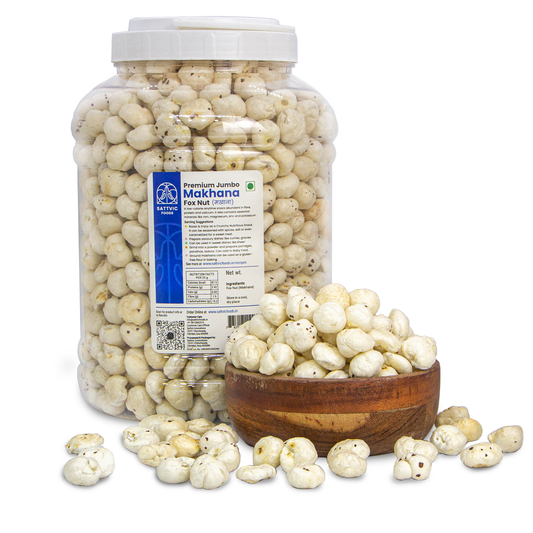
Makhana (Fox Nut) | Premium Jumbo
Regular price From Rs. 900.00Sale price From Rs. 900.00 Regular priceUnit price per
Looking for wholesome, clean, and power-packed nutrition? Our range of nuts and seeds offers just that — and more. From crunchy green pumpkin seeds to antioxidant-rich milk thistle, and premium Goan cashews to crisp drum-roasted varieties, each product in this category is carefully sourced, minimally processed, and full of natural goodness.
Pumpkin Seeds, Sunflower Seeds, Chia & More
Whether you're on a fitness journey or just looking to eat better, our edible seeds are loaded with benefits:
· ✅ Pumpkin Seeds – Known to support hair growth, prostate health, and better sleep.
[Is it good to eat pumpkin seeds every day? Yes—moderation is key, about 1–2 tablespoons daily.]
Can dogs eat pumpkin seeds? Find out now!
· ✅ Sunflower Seeds – Rich in vitamin E, magnesium, and healthy fats, they support heart health and reduce inflammation.
[Wondering how many sunflower seeds per day? About a quarter cup is ideal.]
How to eat pumpkin & sunflower seeds
· ✅ Chia Seeds – High in fibre, omega-3s, and protein, these seeds may aid weight loss and skin health.
[Chia vs Sabja Seeds? Chia is smaller, chewier, and higher in protein.]
· ✅ Milk Thistle Seeds – A traditional liver detox agent rich in silymarin, known for its antioxidant and anti-inflammatory effects.
[Can milk thistle be eaten raw? Yes, sprinkle or roast lightly.]
· ✅ Sabja Seeds – Also known as sweet basil seeds, often confused with chia, they’re great for digestion and cooling the body.
Cashews, Pistachios, Apricot Kernels & More
Enjoy our premium-quality nuts — raw, roasted, or sun-dried. Each bite is packed with protein, healthy fats, and micronutrients.
· 🟢 Goan Cashews – Known for their rich taste and unique GI tag, our cashews are offered in various grades including the rare W150 and W210.
[How many cashews to eat per day? 5–10 is a healthy portion.]
· 🔥 Drum Roasted Cashews – A crunchier, oil-free version that's roasted in traditional drums.
[Can I eat roasted cashew with skin? Absolutely, it’s fibre-rich and full of antioxidants.]
· 🌿 Bitter & Sweet Apricot Kernels –
o Sweet kernels are safe to eat, rich in vitamin E and perfect for snacking.
o Bitter kernels have higher amygdalin content; consume with caution.
[Apricot kernels vs almonds? Apricots offer different benefits, particularly for immunity and skin.]
· 💚 Pistachios – Naturally cholesterol-free and heart-healthy, pistachios are a satisfying snack that may help with weight management.
📋 Why Choose Our Nuts & Seeds?
· 🌾 Naturally grown & minimally processed
· 🚫 No additives, preservatives, or artificial flavourings
· 🌿 Gluten-free, vegan-friendly, keto-approved
· 👨 Supporting independent Indian farmers and sustainable agriculture
· 🔬 Some are ozonated and dehydrated for longer shelf life and better crispness
❓ Frequently Asked Questions
Q: Can I eat these seeds daily?
A: Yes, in moderation. For example, 1–2 tablespoons of chia or pumpkin seeds daily is safe and beneficial.
Q: Are your cashews suitable for diabetics?
A: Yes, when consumed in limited quantities. Always consult a nutritionist for portion control.
Q: What is W150 or W210 cashew?
A: These refer to the size and count of cashew kernels per pound. W150 is larger and more premium.
Q: Are bitter apricot kernels safe?
A: Only in very limited quantities. Sweet apricot kernels are the safer, everyday alternative.
Q: What is the benefit of pumpkin seeds?
A: Pumpkin seeds are rich in zinc, magnesium, and antioxidants. They support prostate health, better sleep, and may promote hair growth.
Q: How to use pumpkin seeds in daily meals?
A: Add them to salads, smoothies, granola, or eat roasted as a healthy snack.
Q: Which is better – sunflower seeds or pumpkin seeds?
A: Both are highly nutritious. Sunflower seeds are higher in vitamin E, while pumpkin seeds offer more magnesium and zinc.
Q: Can chia seeds reduce belly fat?
A: Chia seeds are high in fibre and may aid satiety, digestion, and weight management when combined with a healthy diet.
Q: What is the Indian name for chia seeds?
A: Chia seeds are commonly called “Sabja” in India, although technically, sabja seeds come from sweet basil and differ in structure and function.
Q: Are chia seeds and sabja seeds the same?
A: No. Chia seeds are from the Salvia hispanica plant; sabja seeds are from Ocimum basilicum (basil). They differ in appearance, nutrition, and hydration properties.
Q: Are sunflower seeds good for skin and hair?
A: Yes. Their high vitamin E and selenium content help improve skin texture and promote healthy hair growth.
Q: What is milk thistle used for?
A: Milk thistle seeds support liver health, detoxification, and provide antioxidant protection due to the active compound silymarin.
Q: Can milk thistle seeds be eaten raw?
A: Yes. They can be eaten whole, crushed into powder, brewed as tea, or roasted for added flavour.
Q: How many sweet apricot kernels can I eat per day?
A: 5–7 sweet apricot kernels are generally considered safe. Bitter apricot kernels should be consumed in very limited quantities due to amygdalin.
Q: Are pistachios good for weight loss?
A: Yes, in moderation. Pistachios are high in protein and fibre, which promote fullness and help manage appetite.
Q: Can dogs eat cashews?
A: Yes, in small quantities and unsalted. Avoid feeding them regularly or in large amounts.
Q: What is W150 or W210 cashew?
A: W150 cashews are larger and fewer per pound, while W210 are slightly smaller. These numbers indicate grade and size.
Q: How many cashews can I eat per day?
A: 5–10 raw or roasted cashews are a healthy daily serving for most adults.
Q: What are the benefits of roasted cashews?
A: Roasted cashews are crunchy, satisfying, and rich in healthy fats, magnesium, and plant protein. Drum roasting preserves flavour without adding oil.
Q: What is the GI tag of Goan cashews?
A: GI tag indicates that Goan cashews are unique in taste and quality, native to Goa and legally protected as a geographical indication.
























